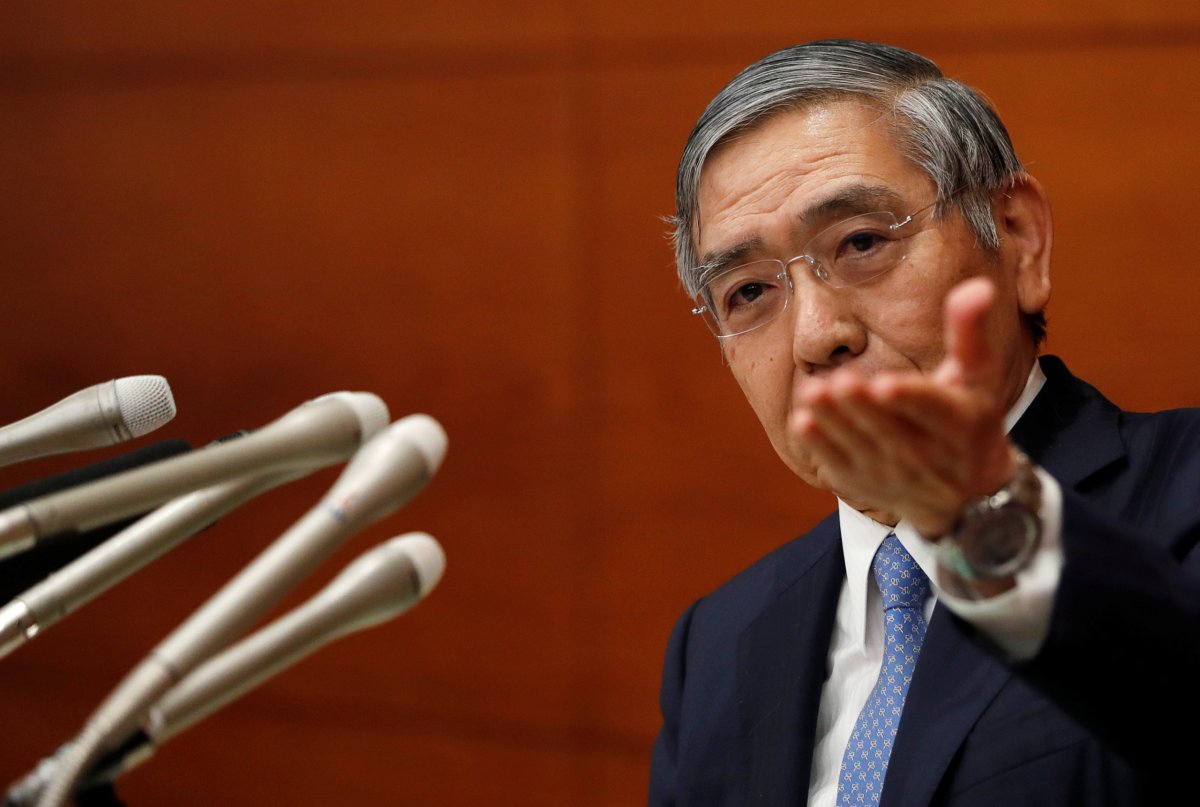By Leika Kihara and Stanley White
TOKYO (Reuters) – Bank of Japan Governor Haruhiko Kuroda on Monday reiterated the central bank’s resolve to maintain quantitative easing, but his positive comments on inflation and the economy sent the yen to a four-month high versus the dollar.
Core consumer prices are rising around 1 percent, Kuroda said in a speech to BOJ regional branch managers. This was a slight change from his previous speech to branch managers, when he said core consumer prices are around zero.
Kuroda also reiterated his optimism that the economy will continue growing. This drew the attention of some traders who are nervous about a change in policy following a slight reduction in the BOJ’s government debt purchases last week.
“The economy is expected to continue expanding moderately,” Kuroda said in a speech at a quarterly meeting of the bank’s regional branch managers.
He also said a moderate economic expansion now under way will help accelerate inflation toward the BOJ’s 2 percent target, signaling its desire to maintain the status quo on monetary policy for the time being.
The BOJ will continue its aggressive easing, composed of yield curve control and a massive asset-buying program, for as long as needed to achieve its price target, he added.
The dollar fell to as low as 110.63 yen Given the rising cost of prolonged easing, such as the hit to bank profits from ultra-low interest rates, the BOJ has been sending subtle yet intentional hints it could edge away from crisis-mode policy earlier than expected. But a small cut to its regular bond purchases last week pushed global yields and the yen higher, underscoring the challenge the BOJ faces in communicating its policy intentions.
“Kuroda’s change in language merely reflects recent price gains, but people have become sensitive to even the subtlest difference since the BOJ cut bond purchases,” said Shuji Tonouchi, senior market economist at Mitsubishi UFJ Morgan Stanley Securities. “Members of the government are also making more positive comments about escaping deflation. Policymakers are gradually changing their tone.”
Japan’s economy minister raised eyebrows last week when he talked up the government’s progress in reflating the economy and suggested it is possible to declare an end to deflation before consumer prices reach the BOJ’s 2 percent inflation target. In November core consumer prices rose an annual 0.9 percent. This is distant from the BOJ’s price target, but it is a sign of progress. In the 2016 calendar year, core prices fell 0.3 percent, the first decline in four years. The BOJ’s branch managers will issue a quarterly report at 2 p.m. (0500 GMT) assessing the impact of the bank’s monetary steps on regional areas of the country.
“Japan’s financial system remains stable and monetary conditions are very accommodative,” Kuroda said, holding off from repeating recent warnings about the rising cost of ultra-easy policy. Japan’s economy has been expanding thanks to robust exports and capital expenditure. But inflation remains well below the BOJ’s target as firms fear that raising prices could scare away cost-sensitive consumers. (Reporting by Leika Kihara and Stanley White; Editing by Chris Gallagher and Simon Cameron-Moore)


















